 Petzlover
Petzlover Owyhee Bob is originated from United States but Tonkinese is originated from Canada. Both Owyhee Bob and Tonkinese are having almost same weight. Owyhee Bob may live 3 years less than Tonkinese. Both Owyhee Bob and Tonkinese has same litter size. Owyhee Bob requires Low Maintenance. But Tonkinese requires Moderate Maintenance
Owyhee Bob is originated from United States but Tonkinese is originated from Canada. Both Owyhee Bob and Tonkinese are having almost same weight. Owyhee Bob may live 3 years less than Tonkinese. Both Owyhee Bob and Tonkinese has same litter size. Owyhee Bob requires Low Maintenance. But Tonkinese requires Moderate Maintenance
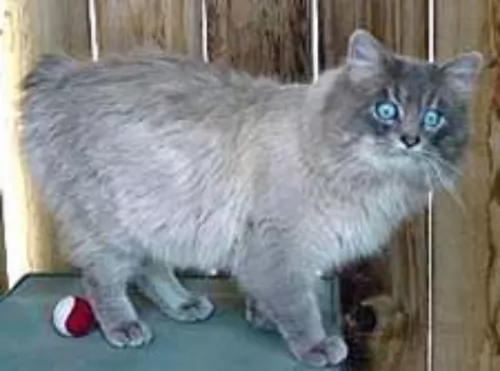 This breed of cat is a cross between two fantastic cat breeds – the Manx and the Siamese. It’s a cat breed that is recognized by the Rare and Exotic Feline Registry.
This breed of cat is a cross between two fantastic cat breeds – the Manx and the Siamese. It’s a cat breed that is recognized by the Rare and Exotic Feline Registry.
The Owyhee Bob is also just casually referred to as the Owyhee and it's an experimental feline breed.
It’s from the USA and is polydactyl, which means that the cat carries the genes of the Manx while the other breed used to create them is the Siamese.
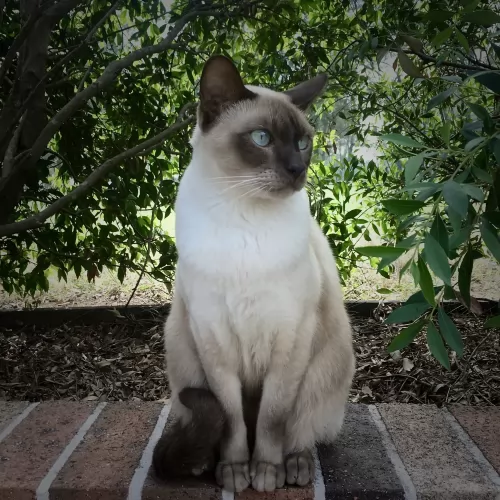 It was about in 1960 that a breeding program was established for these cats. The Tonkinese is a cat that hails from Canada and it was a certain Jane Batlett who was responsible for breeding this cat.
It was about in 1960 that a breeding program was established for these cats. The Tonkinese is a cat that hails from Canada and it was a certain Jane Batlett who was responsible for breeding this cat.
Also, Margaret Conroy, another breeder, set up her breeding program between a Burmese female with a Siamese. Both Conroy and Bartlett worked together on the breed and the Tonkinese came about. The Cat Fanciers Association recognized this cat breed in 1984.
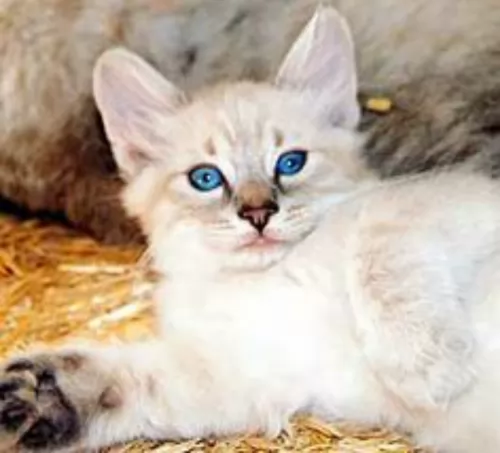 The cat has spotted or marbled markings on his coat which can be long or short. In fact, the coat can be in all colors and patterns.
The cat has spotted or marbled markings on his coat which can be long or short. In fact, the coat can be in all colors and patterns.
Its a medium to large-sized cat, muscular with a round head and medium to large-sized ears that have some feathering around the rounded tips.
The tail too can be long or short but the preferred look is the stumpy tail. The cat has large oval eyes that are wide-set and blue, like one of the parent cats - the Siamese.
The Owyhee Bob is a social cat and very playful. He likes nothing more than to be part of his human family. He is intelligent too and becomes a loving and loyal pet.
The personality of the Owyhee Bob is sweet-tempered and social. They are also these kinds of cats that follow you wherever you go and when you sit down, they’re eager to be in your lap.
These cats don’t do well in homes where their humans work all day, every day and they are left in solitude hour after hour.
Remember that the socialization you give your kitten as well as the environment it grows up in can play a role in the temperament of your cat.
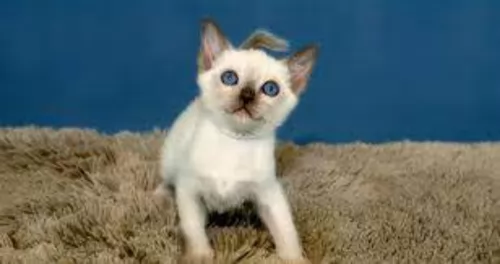 As a medium-sized cat, with a firm, muscular body, your Tonkinese will weigh between 2.5 – 6kg.The head is slightly rounded with fairly broad ears that are set wide apart.
As a medium-sized cat, with a firm, muscular body, your Tonkinese will weigh between 2.5 – 6kg.The head is slightly rounded with fairly broad ears that are set wide apart.
The eyes are bigger than the classic Oriental shape and can range from green to light blue in color.
The coat of the Tonkinese is short and close-lying and is soft and silky to touch. The mask, the ears, legs and tail are all darker than the body.
The Tonkinese cat breed is recognized by the Cat Fanciers' Association in 4 base colors - medium brown, champagne, blue and and platinum.
The Tonkinese cat, with one of its parents being the Siamese cat, just loves giving and receiving attention.
Active and social, he is an excellent choice for families with children and even other pets. They love just seeking out their human companions and lying down where they are.
They’re intelligent felines these, and you can even teach them some simple commands. Because of them being so very social, they don’t like to be left on their own – certainly not for the whole day while you go off to work.
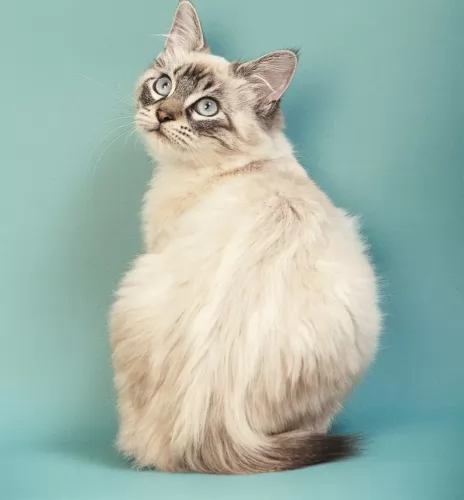 The Owyhee cat in your home becomes a wonderful pet. They’ve got such playful, jaunty personalities and they’re clever too.
The Owyhee cat in your home becomes a wonderful pet. They’ve got such playful, jaunty personalities and they’re clever too.
Social, sweet-tempered, and active, you won’t be disappointed by having such an awesome feline companion in your home.
After all, he has fantastic parent breeds – the Siamese and the Manx – and the two blended together brings out all the most amazing characteristics in the Owyhee Bob cat.
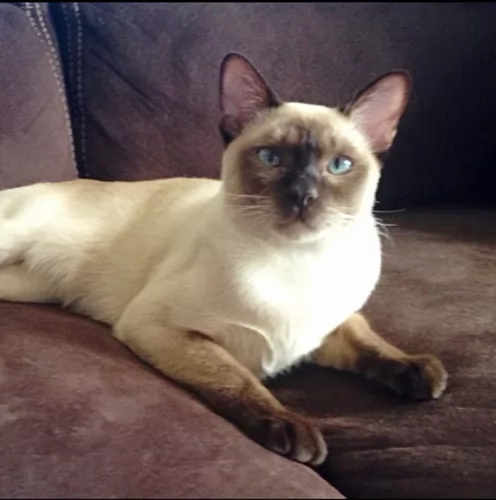 Tonkinese cats can be active and highly entertaining with their antics. When you laugh at them, they are encouraged to perform more.
Tonkinese cats can be active and highly entertaining with their antics. When you laugh at them, they are encouraged to perform more.
They are affectionate and intelligent cats and you will need to have toys for him. When he isn't playing, he likes nothing more than to be petted and pampered by his human family.
Your Tonkinese will get on well with children and other pets, and he generally makes a splendid pet for those who care well for him.
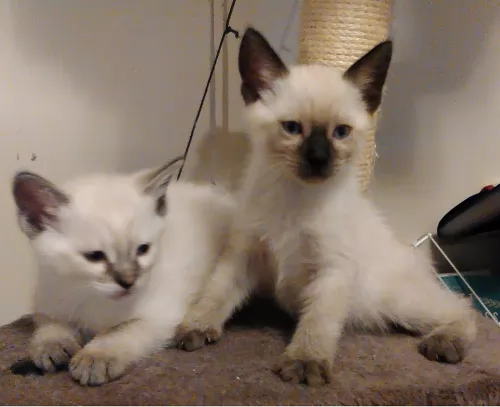 Every cat, regardless of how healthy can get ill. If you don’t want your cat to become a parent, he or she will need to be spayed or neutered as well which comes with a host of health benefits.
Every cat, regardless of how healthy can get ill. If you don’t want your cat to become a parent, he or she will need to be spayed or neutered as well which comes with a host of health benefits.
If you worry about the cost of vet bills, you can rather pay a small amount each month for pet insurance.
Certainly, as a cat owner, you need to recognize the signs and symptoms of some of the more common illnesses your cat could get so that you can get your feline pet to the vet before he gets too sick by neglecting it.
Cancer is a killer disease where cells grow uncontrollably so that the disease spreads to every area of the body. Cats can get different types of cancer but you need to know some of the symptoms to watch out for.
Your cat may lose weight, you’ll maybe notice a difficulty with swallowing, he has a sore that won’t heal, he doesn’t want to eat, he is losing weight and he may have a new, unusual lump.
This is a tricky illness and cats infected with this disease may not show symptoms until years after they were infected. With this disease, the cat’s immune system is weakened and the cat is open to all kinds of other secondary infections.
Parasites can make a cat seriously ill. It is why vets deworm kittens. Infestations of worms can cause a host of symptoms. Certainly, your cat is listless, dull and the hair may even fall out.
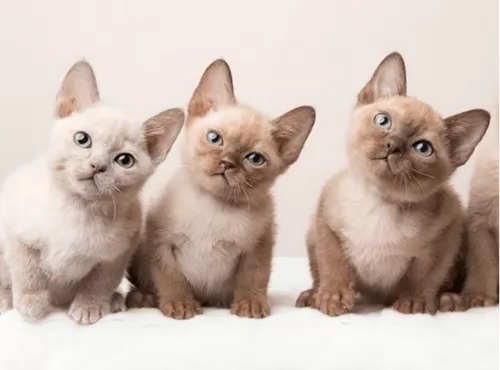 Tonkinese are generally healthy cats but they can be prone to eye problems such as gingvitis.
Tonkinese are generally healthy cats but they can be prone to eye problems such as gingvitis.
Because they are part of the Siamese family, they can succumb to some of the diseases that the Siamese battles with. These are asthma/bronchial disease, heart defects, lymphoma, and crossed eyes.
Lymphoma is linked with feline leukemia, a viral infection, and thankfully, more cats are being vaccinated for feline leukemia, so fortunately it is becoming less common.
Intestinal lymphoma affects the gastrointestinal tract and is the most common type of lymphoma in cats, being more common in older cats. Affected cats can suffer with weight loss, vomiting, and diarrhea. Get your cat to the vet as diagnosing this lymphoma will require the vet finding cancerous cells on microscopic examination.
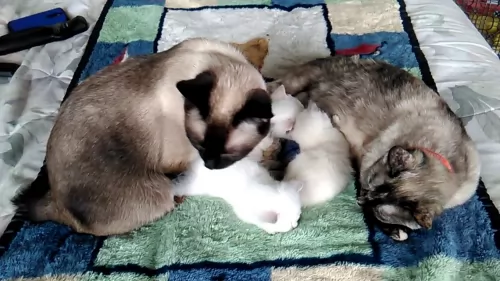 Your Owyhee Bob is a social cat so he will require interest and companionship from his human owners.
Your Owyhee Bob is a social cat so he will require interest and companionship from his human owners.
Choose the best cat food that there is. Your Owyhee Bob cat is a carnivore and he will require excellent cat food to ensure his health. Make sure he has a constant supply of fresh, cool water.
Provide a litter tray and clean it out every day.
Provide a warm, dry bed for your cat, stimulating toys, a scratching-post, climbing tree, food and water bowls, a collar and grooming accessories.
Get you Owyhee Bob to the vet when he shows any sign of illness. Make sure that he gets his kitten vaccines.
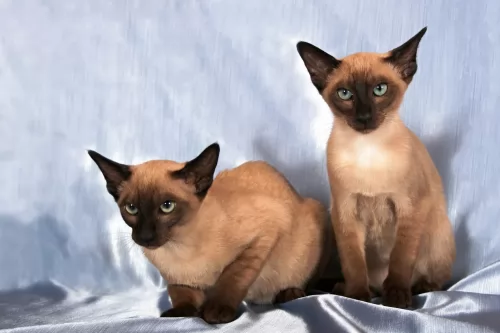 The Tonkinese has a short coat so a brush once a week will be sufficient for this cat as it just helps to brush away dust and loose hairs.
The Tonkinese has a short coat so a brush once a week will be sufficient for this cat as it just helps to brush away dust and loose hairs.
He will need a litter box and this will need to be kept spotlessly clean. Use a small rake, available from your vet or local pet shop, to rake up the cat’s feces.
When you first bring your Tonkinese cat home, you will at least need some of the basics to ensure his wellbeing. These are -
sleeping equipment – baskets or cushions in a nice warm, dry place for your cat.
A cat tree for climbing and a scratching post. Cats are natural scratchers so you can’t get angry with your cat for scratching. Instead, invest in a scratching post so that he doesn’t use your furniture to scratch on.
Food is such an important part of caring for a cat. The best type of cat food can ensure your cat has a strong immune system that allows him to not succumb to every cat sickness there is.
Cats are carnivores so ensure he has food high in meat. Sometimes it can be costly, but try to provide your cat with the best, most high-quality cat foods there are to ensure his good health and happiness.
A cat needs a constant supply of fresh, cool water night and day. The water should be changed regularly.